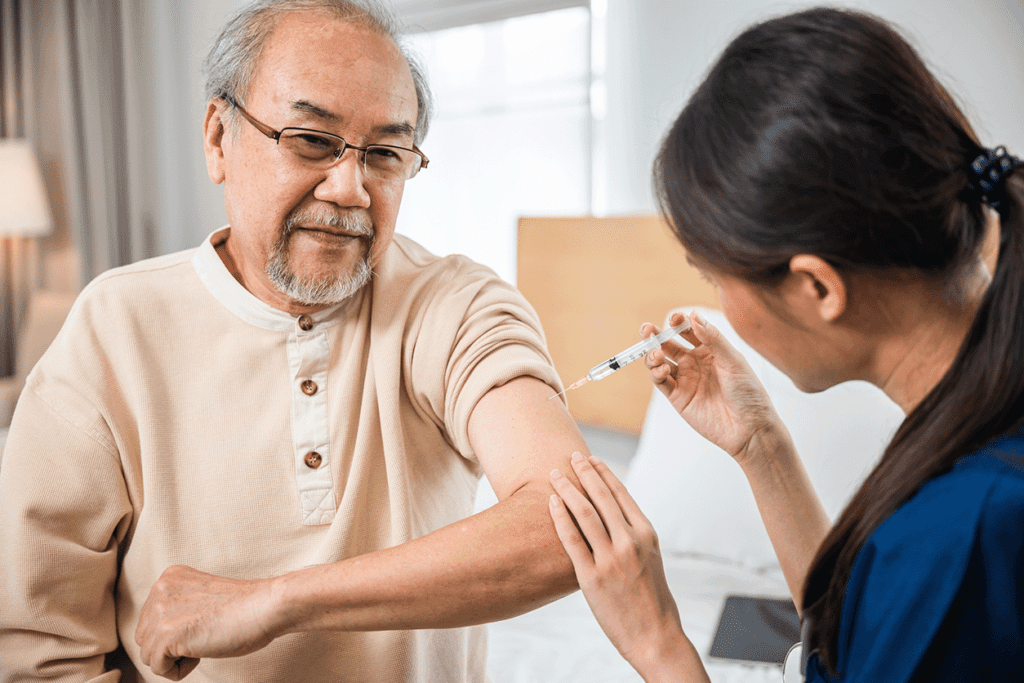
We kick off National Immunization Awareness Month with a look at the promise of the new RSV vaccine.
If you’ve been tracking the news in the immunization space this year, then you’ve likely noticed one three-letter acronym pop up repeatedly: RSV. What is RSV and what do you need to know about the new RSV vaccine approved this year?
RSV stands for respiratory syncytial virus. RSV is a commonly transmitted respiratory infection that is spread through coughing, sneezing and contact with infected droplets on surfaces. Infections tend to peak in colder seasons, as with flu. Most patients remain infectious (read: they can spread RSV to someone else) for 3 to 8 days when they have symptoms; and actually they can be infectious a day or two before developing symptoms. This makes RSV highly contagious, especially in congregated settings like schools, daycares, nursing homes, and college dorms, where many people are living in a shared space.
RSV infection is mild in most people but can pose a particularly high risk for some people. While most people hear about the risk it poses to infants, many seem to overlook the risk to the elderly: As many as 14,000 adults over the age of 64 die from RSV infections every year.
Until recently, prevention of RSV has largely been limited to maintaining hand hygiene (washing or using hand sanitizer on your hands), staying away from infants and elderly people if someone has RSV, and cleaning high contact surfaces like door handles, counters, and light switches. But now, the new RSV vaccine is a complete game changer. So in addition to preventing the spread of RSV using those methods above, people can now get an RSV vaccine, which works similarly to vaccines for COVID-19 infection.
Target populations and RSV vaccine rollout
In May 2023, the Food & Drug Administration (FDA) approved an RSV vaccine for adults over age 60, and then followed that up with a similar approval for babies and toddlers. Late last month, the Centers for Disease Control and Prevention (CDC) updated its recommendation to advise that adults over age 60 should discuss receiving a RSV vaccine with their healthcare providers.
Although the CDC expects two new RSV vaccines to be available in late July 2023, it is likely that RSV vaccine rollout will be slow. That means it will take time for older adults to get vaccinated. Older adults may be able to get vaccinated this fall. Regardless of when the rollout begins, it will be the first time older adults get to make that decision, and that is a remarkable achievement.
Primary.Health monitors vaccine status and availability and will support community RSV vaccine clinics following rollout. Learn how to schedule your community clinic.
Disclaimer: This blog content and linked materials are not intended as individual medical advice, diagnosis or treatment, and should not be considered as such. Any readers with medical concerns should contact a licensed healthcare provider. This blog is provided for informational purposes only.
